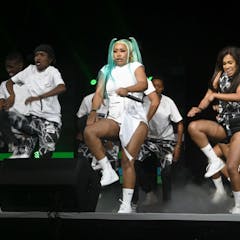
Articles on post-apartheid
Displaying 1 - 20 of 99 articles

The cycle of opportunity and prestige for historically advantaged institutions leaves historically Black institutions on the back foot.

Social media is a lifeline for community radio, helping it grow by being shaped by young listeners.

The winner of the prestigious FNB Art Prize documents township life in lockdown and rural life in a former homeland.

Who the taxi strike affected, where and how shows the violent reality of the city’s spatial injustice.

Despite some positive shifts, the staffing situation at public higher education institutions remains polarised in terms of race and gender.

Opening the Encounters documentary festival in South Africa, the film has received international praise.

Smart, capable students struggled to navigate cultural and language norms in university accounting classrooms.

These vibrant writers embrace the open road and claim spaces that were denied them during apartheid.

The beats are fresh but the performances are second rate and lacking star quality.

The study analysed the content of six news outlets from 1994 to 2014, looking at how core socio-economic issues were reported.

It’s important to guard against empty gestures. Taking the knee represents a start. But on its own it won’t bring meaningful change to the lives of black people.

In both countries, neglect and misinformation at the highest levels of government led to undue tragedy.

In each of his novels, he explored questions that shifted South Africa’s cultural debates, especially about memory and race.

In South Africa and India, research has found that free or affordable housing can actually undermine women’s safety and livelihoods.

During the apartheid period in South Africa – 1948 to 1994 – a lively intellectual culture of opposition emerged on some of the country’s university campuses and within the broader anti-apartheid movement…

It’s easy to report on access and inputs, but much more difficult to achieve educational quality and meaningful outcomes.

South Africa has made progress towards interrupting the looting of land by chiefs, state officials and mining capital.

Mandela did not make the decision to jettison Taiwan and recognise China. He adhered to a decision by the governing ANC.

Mandela continues to serve as a rare example of a principled politician committed to forgiveness and reconciliation.

South Africa’s governance challenge can’t simply be fixed by reorganising the structure of government.
